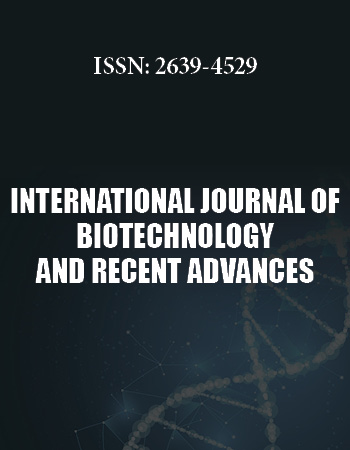International Biotechnology and Research Conference
April 25-27, 2018 Rome, Italy
The Casein Kinase 2 (CK2) and PIm Kinase as a Target for Anticancer Therapy
Warsaw University of Technology, Faculty of Chemistry, Poland
Protein kinases CK2 and PIM belong to serine/threonine kinases that are involved in the regulation of number of signalling pathways. They are upregulated in multiple cancers, including lymphoma, leukemia, breast, prostate, head and neck cancers and act as repressors of apoptosis, contributing to chemoresistance. Over 30 drugs, that target kinases, have been approved for clinical use over the past decade, and hundreds more are undergoing clinical trials, among them are: specific inhibitor of CK2–CX4945 and few specific inhibitors of PIM family e.g. AZD1208, CX-4595, SGI-9481 or LGB321. But their efficiency is not satisfactory so the increasing attention has been recently focused on the significant role of dual kinase inhibitors. Until now a few examples of the benzimidazole derivatives, which affect the activity of both kinases, CK2 and PIM1 have been known. We designed and synthesized novel 4,5,6,7- tetrabromo-1H-benzimidazole (TBBi) and 4,5,6,7- tetrabromo-1H-benzotriazole (TBBt) derivatives with alkylamine substituents. To test the inhibitory properties recombinant human kinase CK2α, CK2 holoenzyme, and kinase PIM1 was obtained in E. coli bacterial expression system. The most promising compound, the 3- (4,5,6,7-tetrabromo-2 methyl-1H-benzimidazol-1-yl) propan-1-amine (14b) inhibited the activity of CK2 with an IC50 of 0.35 M and PIM1 0.15 M. Furthermore, the influence of new active dual inhibitors on the cell viability was evaluated and EC50 determined for 14b with the use of CCRF-CEM, MCF-7 and PC3 cell lines were in the range of 2-4 M.
This work was supported by an NSC Poland grant 2014/13/B/NZ7/02273 and by WUT.
Biography:
Maria Bretner received M.S. degree in chemistry from the Faculty of Chemistry, University of Warsaw in 1974 and Ph.D in biological sciences from the Institute of Biochemistry and Biophysics in 1997. She completed postdoctoral studies at the University of Maryland Baltimore County, USA. (1997-1999). She worked at the IBB PAS developing the methods of new inhibitors synthesis of Thymidylate Synthase, HIV RT and HCV helicase. Since 2007 she is working at the Warsaw University of Technology, Faculty of Chemistry. Research areas include chemistry andenzymology, biocatalysis, biochemistry of the cancer processes. She is a Co-author of 69 scientific papers.


